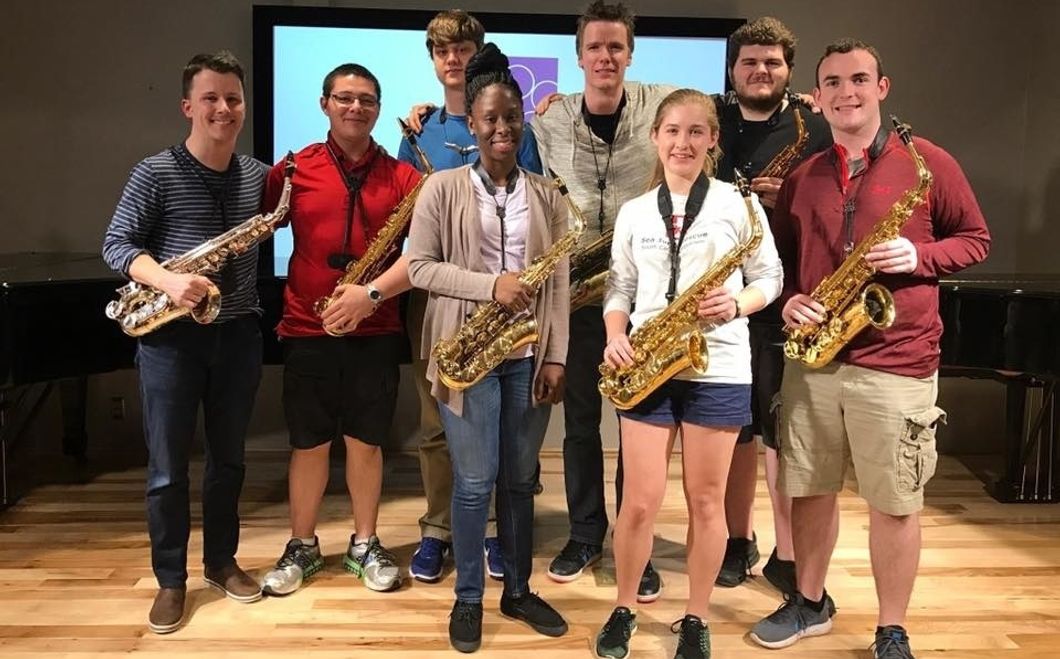I started college as a mechanical engineering major and was looking to double major or minor in Music. A few months into the semester, I realized that the words of every teacher who really knew me in high school were true. I ignored them, thanked them for their advice and did what I thought would be best for me. That's all we can ever do, right?
When I got to college, I was regularly asked what my plans were. In response to my answer, everyone said something along the lines of, "That's bold, kid." I had been told, "You can't do both!" or, my personal favorite, "I wish you luck." Sure, they're very different; I get that. I also get that, oftentimes, musicians are great at math and science, which I am. So, when I pushed on through everything, it felt normal. It felt like what I had been doing for years, which was everything under the sun.
A month or so into college, I was doing fine in classes. I really, really, REALLY loved marching band and Symphonic Band. I was doing very well in my Calculus, Chemistry and Physics classes. Then, I broke my humerus. (LOL it wasn't funny.) A night in the hospital, two surgeries, weeks of missed school and months of physical therapy made me realize something big in my life was missing: I couldn't play the saxophone. And, I was learning to play trumpet one-handed, with my left hand (the wrong one, if you're not familiar.)
Though every day I would sit and do my homework, I was just not happy. I realized that what made me happy was to sit for hours in a practice room making something beautiful and, sometimes, some not so beautiful sounds. It gave me peace in my day; it re-centered me and made me feel better even when I was struggling with parts of the music. I simply did not get that kind of satisfaction and joy from finishing a sheet of differential equations.
The funniest thing though was that, when I switched majors, I struggled much harder than I ever would have in engineering with music of all things. Not only did I need to practice three to four hours a day (which I loved), but, instead of always being able to check and see if I was right or wrong, it became a game of interpretation. How do I interpret what this composer wants and bring it to life? As a very shy person, I spent several months with a special sign made by my professor that read "Play Louder!" in large, bold, red ink. And then, even with other homework that has more straightforward rules such as music theory or ear training, I realized it's much harder to teach yourself material.
In most of my classes prior to this, I was taught everything step-by-step on a board, afforded a chance to ask questions and ensured that I learned everything the proper way before doing the homework. Then, I was usually able to check my answer with the back of the book. There're no answers in the back of the book in music theory. And my professor's teaching style was very hands-off. He would lecture on the homework topic after the homework was due. I understand reading ahead before class, it's very helpful; but if you're asked to learn the information on your own and utilize it in graded homework before ever being formally taught and shown how to do it, it's easy to learn something incorrectly. Especially as a kinesthetic learner.
But, while my major has challenged me in ways I'd never expect (to step outside my comfort zone and to learn how to learn differently), it's all been worth it. I'll apologize to every teacher who said, "Sam, you should study music. It's what you love and what makes you happy." I brushed their comments off, thinking that engineering would be much more practical. And, I'll be honest, my music major has been so much harder than my mechanical engineering major; but it has also been the biggest learning opportunity I've yet to be afforded.






















